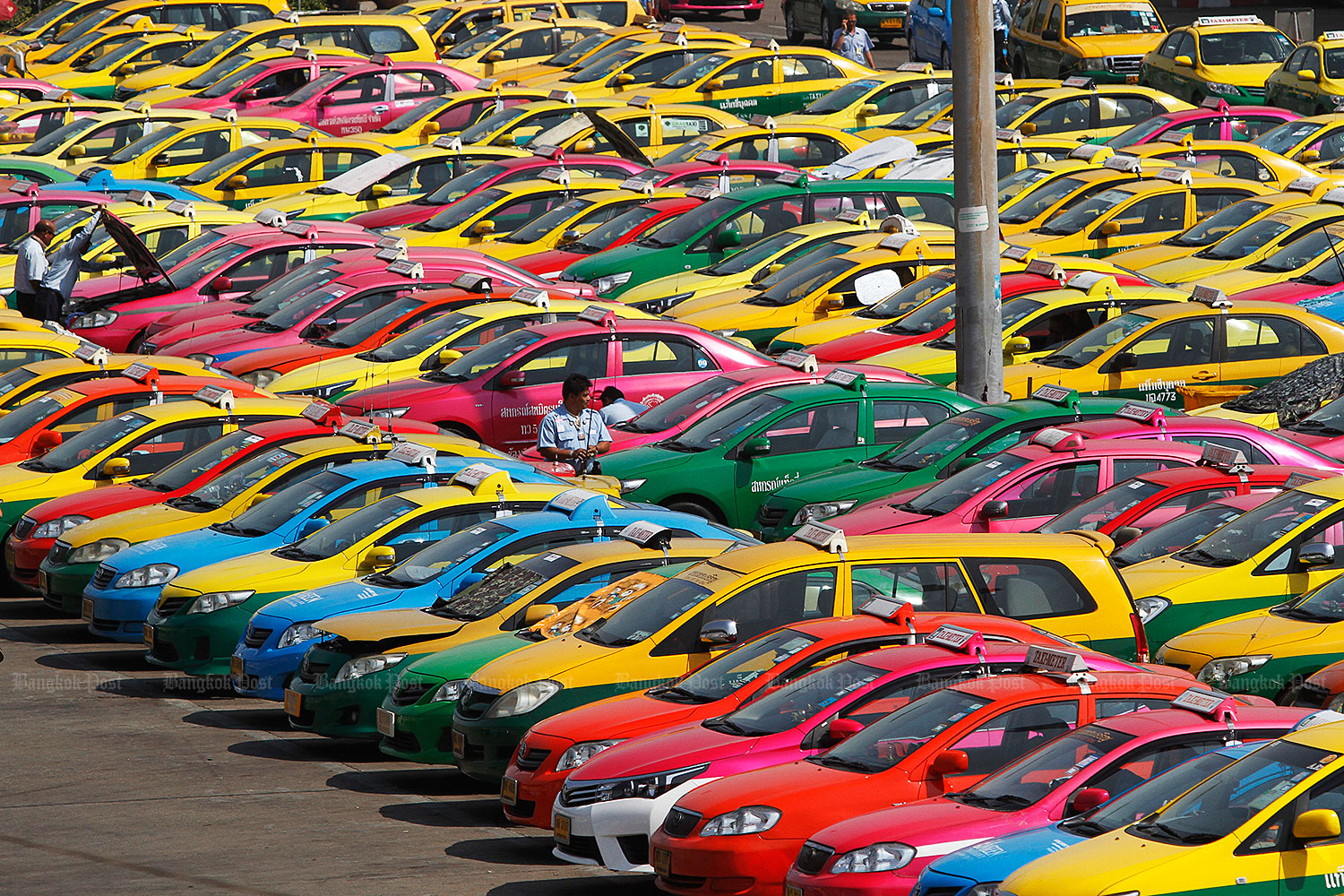
Bangkok commuters and visitors are bracing for higher taxi fares that will take effect next month.
Transport Minister Saksayam Chidchob, during a recent meeting with taxi operators, agreed to the hike in fares, which he said reflected costs taxi operators have been shouldering for a long time.
Under the new pricing structure, the flag fare of 35 baht for the first kilometre will remain unchanged. The fare per kilometre for the first 10km, however, will rise by 0.50 baht, while the traffic charge for a stationary taxi will increase from 2 baht to 3 baht per minute. From the 10th kilometre, the rise is 50 satang per km.
The airport taxi surcharge will also be increased, from 50 baht to 70 baht for regular taxis, and 90 baht for taxi vans.
While commuters won't be happy about a fare hike that amounts to an increase of around 10%, what choice do they have? Taxis are a major transport mode given the poor state of Bangkok's overcrowded public transport network. Most passengers, however, might well be willing to pay more if cabbies improved their service, which would mean not rejecting passengers anymore or refusing to use the meter, especially with foreigners.
At the same time, though, commuters should be grateful for the minister's other move -- to legalise app-based taxi services. This decision, whereby ride-hailing services will be taxed just like conventional taxi operators, will at least help to prevent the street fights that have broken out among drivers from rival operators. It should also make overall services more competitive, giving passengers a choice while also reducing their risk of being "held hostage" by warring cabbies, as has been reported in previous cases.
Mr Saksayam deserves praise for trying to improve the taxi service and end the controversy over app-based services. But his efforts may have ignored the bigger picture of public transport in the city. In explaining that the fare hike reflects the rising cost of spare parts and maintenance shouldered by operators, he forgot to mention the need for operators to improve their service as city commuters seek value for money.
Bangkok's governor recently bragged about his success in reducing the maximum Skytrain fare from 158 baht to 65 baht along the route of 48 stations once the Green Line extension is completed next year.
Maybe the governor needs reminding that the daily minimum wage in Bangkok is just 330 baht, while pay rises for most office workers have barely been above the inflation rate? The governor's pride in securing the fare cap also fails to disguise the reality that city train fares in Thailand remain among the highest in the region, above those in Singapore.
We will have to wait and see if Mr Saksayam's even more ambitious dreams of a flat-rate fare of 15 baht come true, on a route operated by the private sector via a concession from the Bangkok Metropolitan Administration.
More importantly, I am waiting for Mr Saksayam to acknowledge that he hasn't yet touched on public bus services, often the only travel choice for Bangkok's poorer people.
I'm not even sure whether the minister, who oversees no less than 13 agencies including Airports of Thailand and the Bangkok Mass Transit Authority, is aware that many of Bangkok's overstretched public buses are simply not roadworthy.
I'm also uncertain if the minister is aware that the price of weekly and monthly bus tickets increased by 20% this month, a hike that will rise to 50% by next April under BMTA plans.
The cost of a weekly ticket for a non-A/C bus, for example, has increased from 100 baht to 120 baht and by April will be 150 baht. Fares for air-conditioned buses are on the rise as well.
The minister would be doing a service to commuters if he suspended plans for a further increase.
Meanwhile, instead of explaining that operators have had to shoulder rising production costs over the past few past years -- while neglecting to mention that commuters have had to put up with poor standards of service -- the transport minister and the Bangkok governor could make better use of their time by studying how to make public transport more efficient and affordable for all.
Success in this endeavour would encourage more car users to switch over to public transport. This would be the best way to ease traffic congestion, not increasing the speed limit to 120kph.
Sirinya Wattanasukchai is a Bangkok Post columnist.
